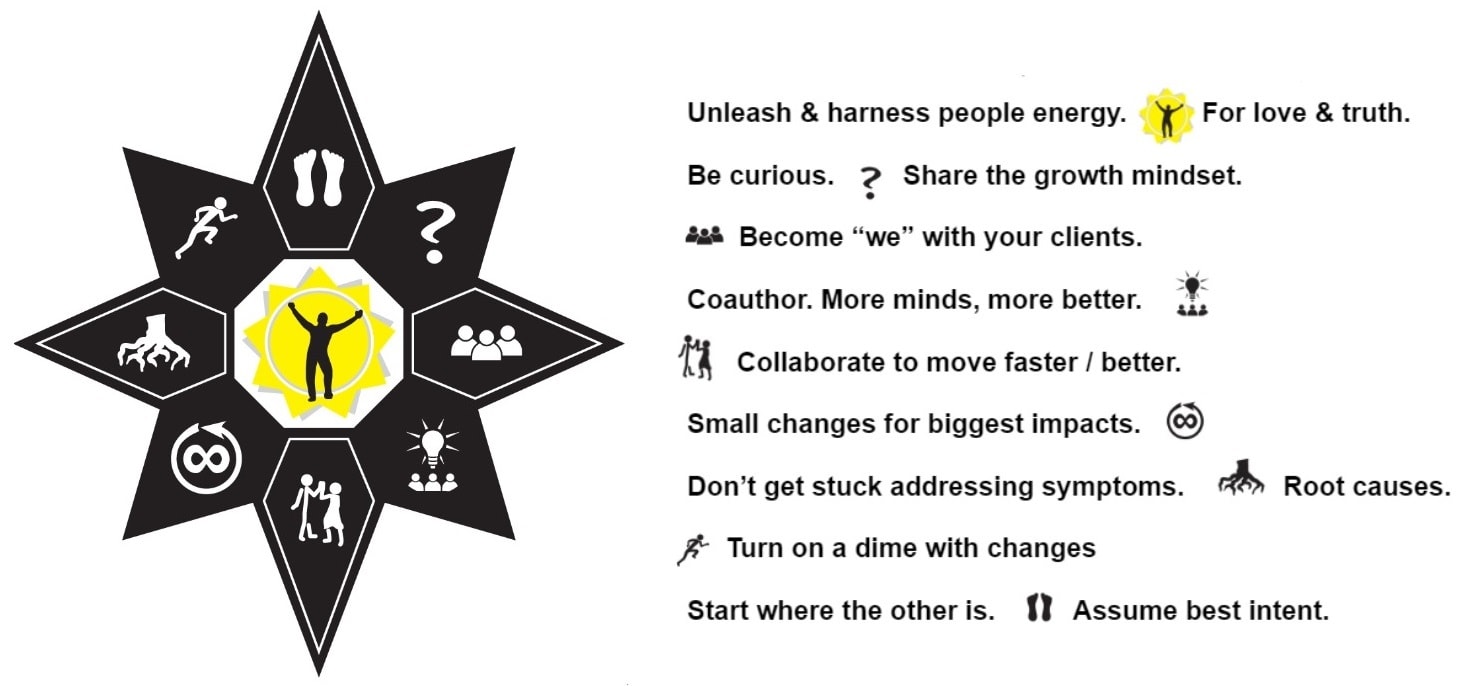Do we really know what awaits us all in 2024?
Forecasting the future is a popular pastime, but boy is It hard to get these guesses right. Sure, we know some things. We observe some things. We’ve seen this pattern before.
This is important information.
But we are fallible humans. We fool ourselves about what we think we know. Even when we look back, we can’t help but apply the 20-20 hindsight goggles to what we predicted. So what am I trying to do here? What am I doing prognosticating about the near future?
As a business leader, I’ve tried to guess about the future just like you have.
Take late 2019 for example. I felt something was about to change, but I didn’t know what. Things felt hectic, but would that continue? We all know the answer to that question now, but since I didn’t know what was to come, I chose to keep pushing forward the same way we were already pushing.
What I want to emphasize is what we leaders don’t know for sure.

Yes, we hear the economists tell us we’re in for a recession. Some of them swear the economy’s been great. Tell that to my professional services business owner friends who have had to lay people off.
So I wonder what to expect– what to plan for– when nobody knows for sure and those who sound the most certain have massive blindspots in their field of vision. How could they not?
People say lots of things that aren’t correct. Experts too.
Yes, we know that presidential election years add uncertainty to any economic guess about the future. No matter what party someone likes or doesn’t like, that doesn’t matter. What matters is we Americans have some big decisions to make as a society in election years, making it a little harder to look around the corner and see clearly. It happens every four years and this year is a high-consequence decision.
I think that’s something most of us can agree on. So I wonder and wait and prepare for the best and worst the year has to offer. Maybe that’s your approach too.
What about AI, AIG, and all of the other fancy words about the latest tech?
Yes, we know technology continues to influence all of our operations. Whether it’s a for-profit or non-profit organization. Whether it’s a micro-business with 10 people or a scaling organization with 150. All of us. Even pure service businesses. Especially pure services businesses.
Forecasting is guessing.
We guess at the impact all these things have on our professional prospects in the coming year, but we can’t know for sure. As Lee Cronin says, “the future is indeterminate.” That’s what makes the future different from the past.
The past we can know about.
We can answer questions about what happened, but we can’t ever predict what’s coming around the corner. Not really.
So what is there to say about 2024?
We, as leaders, have to be ready for the unexpected. We are better off flexing our agility muscles so they get stronger and stronger. We would benefit from keeping an eye on what’s going on around us so we don’t get as surprised by things as everyone else. We know we ought to be ready. Ready for what?
Ready for whatever comes.
An important part of this readiness stems from deeply understanding your purpose. If you know your purpose– your mission– you are better able to make the tough decisions that come with difficult trade-offs without sacrificing the things that matter the most.
The last thing any of us wants is to find ourselves way off track a year or more down the road. We don’t want to wake up and find ourselves further away from our vision for success than we are now. We want to feel a sense of progress. Accomplishment.
I’m in the same boat.
One of the big reasons I started Performentor was to create work that fit me. And it worked! And then we grew and there’s more stuff to do. Energy-depleting activities sneak their way back into my day-to-day. I’m sure many of you can relate! This means I have room to re-center myself to my mission and my purpose. Come what may.
So, 2024. Are you ready for it?

Get ready! First step. Get clear on what are you about. What notable difference are you making through the organization you lead? How thoroughly does your whole team understand these things? It’s hard to do this.
If you’re like me, you might feel it and sense that purpose inside yourself before you are able to put it into words. But you need to put it into words that your team understands. That can take a few bad first tries.
I remember when I was shaping the Performentor brand promise. I said things in different ways and watched the people listening intently. When they lost interest, I knew that my phrasing wasn’t on point. When they looked engaged and energized by what I said, I knew I was getting closer to the target. My willingness to try things, perhaps look stupid but learn as rapidly as I could paid off.
(By the way, if you’re looking for a framework for sharing your purpose, this is the way to do it.)
A clear purpose enables agency in conditions of uncertainty.
As we finish 2023, Performentor approaches our 8th Anniversary. Of course, at the beginning it was just me, then me plus a part-time recruiter, and then grew from there. Fast forward a few years and I started noticing that to fulfill our brand promise through other people, I needed to be much clearer about what “being on brand” looks and feels like in our day-to-day activities.
So I created our Performentor Operating Principles.

What’s that? What are Operating Principles, you ask?
They are like core values, but instead of saying we place value on certain character traits and behaviors, we establish basic rules and assumptions about the way things work. These basic rules and assumptions are operating principles.
A value is something worthwhile, useful, and valuable.
Values are great. Well-defined and in practice, they shape how your team interacts with each other and with customers. They can reduce the need for a litany of policies when done thoughtfully, which is a way to reduce bureaucracy in your organization. That’s a good goal.
If you have values, do you also need operating principles?
Probably not, but I’m not inclined to generalize. Well, of course, the answer is no. You don’t need them, but you can use principles, purpose, mission, vision, values, and other abstract ways of describing the collective zeitgeist that your firm vibes. If I must generalize, I’d say at least one of these done well is far better than none of them. For us, having operating principles makes more sense than values to solve the problem at hand.
Our operating principles enable us be more agile.

Being more agile helps us deal with whatever 2024 has to offer. The ups. The downs. The rollercoaster of confusion and potential anxieties that surely await us. We want to be as ready as possible to adapt and evolve.
To “skate where the puck is going.” That’s what we’re aiming for.
How are you preparing for 2024?
Please share your stories. We love hearing about them. As we say, more minds, more better. Be curious. Share the growth mindset. Coauthor. Turn on a dime with changes. Don’t get stuck addressing symptoms. Find root causes. Make small changes for biggest impacts. Start where the other is. Assume best intent.

